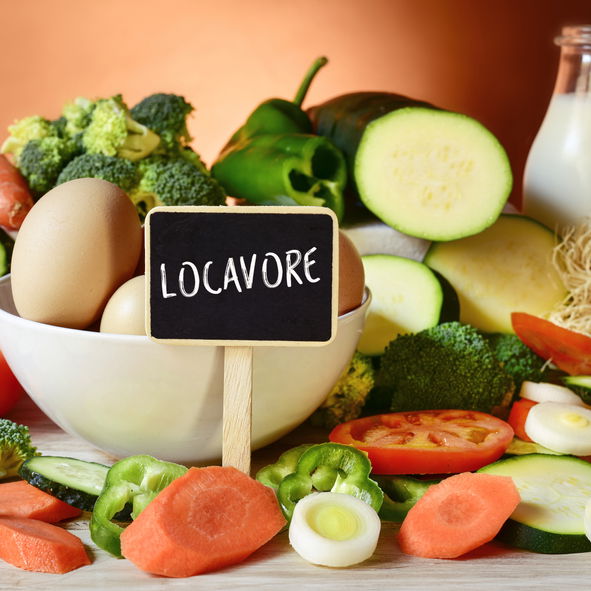Macrobiotic Diet Emphasizes Locally Grown Fresh Vegetables

The first diet book was Letter on Corpulence by William Banting. The English undertaker remarked that of all the parasites affecting humanity none were more distressing than obesity. An obese undertaker himself, he created his own diet to replace his excessive intake of bread, sugar and potatoes with mostly meat, fish and vegetables. The Ancient Egyptian diet consisted of three staples: beer, bread and onions. Both the elite and lower class consumed these every day. Upper class Egyptians also dined off meat, fruits, vegetables and fine wines, whereas the poor were limited to soupy beer, fish and three staples.
Listed below are some popular diet trends tested over the ages:
- IMMORTALITY DIET - Luigi Cornaro was a Venetian merchant who wrote The Art of Living Long, which profoundly influenced European thinking in 1558. He recommended a high fat, low carb intake of food in small, measured quantities. Rule number one was to gain control over the foods you consume.
- CELEBRITY DIET - Poet Lord Byron is considered the source of one of history's first celebrity diets. To ensure he remained pale and thin, the author followed a diet of soda water, bread and vinegar. It became so fashionable that doctors feared young women were starving themselves for vanity.
- RAW FOOD DIET - The raw food diet has been around since the 1800s and includes uncooked and unprocessed whole plant-based foods. Maximilian Bircher-Benner, a doctor, cured his own jaundice by eating raw apples.
- MACROBIOTIC DIET - The macrobiotic diet is associated with Zen Buddhism and based on the idea of balancing yin and yang. The 1930s diet emphasizes locally grown whole grains, legumes, vegetables, seaweed, fermented soy and fruits with natural seasonings and a non-stimulating drink.
- CABBAGE SOUP DIET - Popular in the 1950s, the name says it all. The cabbage soup diet promises 10-15 pounds of weight loss (but not permanent) in one week. With such a low calorie intake, it is not sustainable and most of the weight will be water weight and muscle.
- FRUITARIANISM - Dietary experts argue that fruitarians, who only consume fruits and sometimes nuts, cannot get the essential nutrients needed to survive. Popularized more recently by the late Steve Jobs of Apple, fruitarians consume no animal products or grains.
- PALEO DIET - Paleo dieters are encouraged to eat as naturally as they can. Grass-fed meats, fresh fruits and vegetables, and whole foods like nuts and seeds. Sometimes called the Caveman's Diet, the menu plan focuses on foods similar to what might have been eaten 2.5 million years ago.
- MEDITERRANEAN DIET - With emphasis on consuming fruits, vegetables, olive oil, fish and other healthy fare, the Mediterranean Diet is considered to be eminently sensible. Although it is rooted in ancient times, it is one of the most popular diet plans with today's dieters.
The idea of dieting has been around for a long time, as obesity has plagued people for centuries. The ancient Greeks recognized that people who were very fat were more apt to die at an earlier age than those who ate a plant-based diet and were thin. Moreover, the methods people have used in hopes of reaching physical perfection have varied wildly proving vanity often outweighs common sense.
By submitting this form, you agree to receive marketing text messages from us at the number provided, including messages sent by autodialer. Consent is not a condition of any purchase. Message and data rates may apply. Message frequency varies. Reply HELP for help or STOP to cancel. View our Privacy Policy and Terms of Service.

